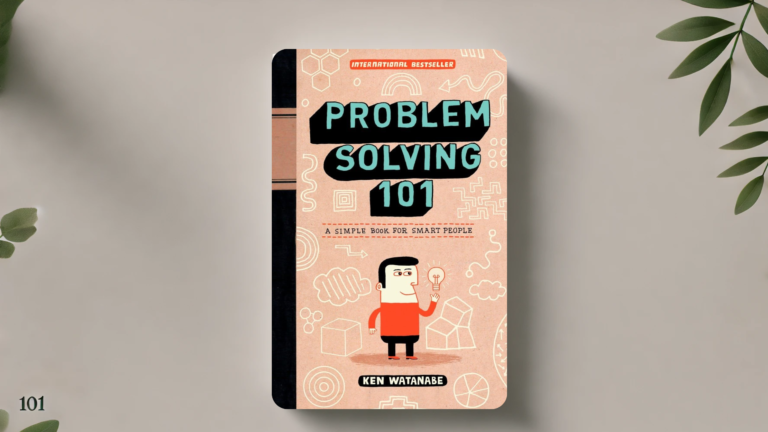Time management is a crucial skill in our fast-paced world. It’s the art of making the most of every moment, ensuring productivity, balance, and success in all areas of life. Brian Tracy’s book, “Time Management,” provides actionable insights that can transform how we approach time. When we align these principles with Islamic teachings, the concept of time management becomes even more profound and spiritually rewarding.
The Importance of Time Management
Time management is not just about organizing your day; it’s about valuing the time Allah (SWT) has given us. Brian Tracy emphasizes that time is a non-renewable resource, and once it’s gone, it can’t be reclaimed. In Islam, time is regarded as a trust from Allah, a gift that must be used wisely. The Prophet Muhammad (PBUH) said, “The feet of the son of Adam shall not move from before his Lord on the Day of Judgment until he is asked about five things: how he lived his life, how he utilized his youth, with what means he earned his wealth, how he spent his wealth, and what he did with his knowledge” (Tirmidhi 2417).
This hadith highlights the Islamic view on time management: every moment should be used in a way that is pleasing to Allah. Whether it’s fulfilling our religious obligations, spending quality time with family, or pursuing beneficial knowledge, time management in Islam is deeply connected to accountability in the Hereafter.
Setting Priorities and Goals
Time management involves setting clear priorities and goals. Brian Tracy advises that we should focus on tasks that are most important and urgent, avoiding distractions that lead to wasted time. In an Islamic context, this means prioritizing obligations like Salah (prayer), fasting, and maintaining family ties. The concept of Niyyah (intention) in Islam emphasizes that every action should be done with the right intention, seeking Allah’s pleasure.
When setting goals, it’s essential to ensure they align with Islamic values. For example, a Muslim might set goals to improve their Quran recitation, increase their knowledge of Hadith, or spend more time in voluntary prayers. These spiritual goals, when combined with worldly goals like career advancement or personal development, create a balanced life where time is managed effectively across all areas.
The Power of Focus and Elimination of Time Wasters
Time management also involves eliminating activities that waste time. Brian Tracy discusses the importance of focusing on high-value tasks and avoiding distractions. From an Islamic perspective, this can be likened to avoiding activities that do not benefit us in this life or the Hereafter. The Prophet Muhammad (PBUH) said, “From the excellence of a man’s Islam is leaving that which does not concern him” (Tirmidhi 2317).
By focusing on what truly matters, we can better manage our time and ensure that our efforts are directed towards beneficial activities. This might mean limiting time spent on social media, avoiding unnecessary gatherings, or cutting down on activities that distract from our religious and worldly responsibilities.
Planning and Scheduling
Brian Tracy emphasizes the need for planning and scheduling to make the most of your time. He suggests creating a daily or weekly plan that outlines your most important tasks. In Islam, planning is also encouraged. The Prophet Muhammad (PBUH) was known for his meticulous planning in all aspects of life, whether in worship, warfare, or community affairs.
Incorporating Islamic practices into your schedule can enhance your time management. For example, planning your day around the five daily prayers can help create a natural rhythm, ensuring that spiritual needs are met alongside worldly tasks. Scheduling time for Quran recitation, Dhikr (remembrance of Allah), and other acts of worship can also help maintain a balanced life.
Continuous Improvement and Self-Discipline
Time management is not a one-time effort but a continuous process of improvement. Brian Tracy advises regularly reviewing your goals and progress to stay on track. In Islam, self-discipline is a key virtue. The concept of Muraqabah (self-accountability) encourages Muslims to constantly evaluate their actions and intentions.
By regularly assessing how we spend our time, we can identify areas for improvement and make necessary adjustments. This could involve setting aside more time for worship, reducing time spent on non-beneficial activities, or finding ways to be more efficient in our daily tasks. Self-discipline in time management leads to a more productive and spiritually fulfilling life.
Key Lessons from Brian Tracy’s “Time Management”
- Start with clear goals: Define what you want to achieve. In Islam, this begins with setting intentions (Niyyah) for both worldly and spiritual objectives.
- Focus on high-value tasks: Prioritize activities that offer the greatest benefit. This echoes the Islamic principle of engaging in actions that are most beneficial for both this life and the Hereafter.
- Eliminate distractions: Identify and remove time-wasting activities. This aligns with the Hadith advising Muslims to avoid matters that do not concern them.
- Plan daily and weekly: Organize your tasks around your most important obligations, including Salah and other acts of worship, to create a balanced and fulfilling routine.
- Delegate where possible: Trustworthy delegation frees up time for high-priority tasks, similar to the Islamic principle of Shura (consultation) in decision-making and task management.
- Rest and renewal: Balance work with rest, as Islam encourages taking care of one’s health and well-being while fulfilling obligations.
- Avoid procrastination: Break tasks into manageable parts and complete them on time, reflecting the Islamic teaching of not delaying good deeds.
- Continuously improve: Regular self-assessment (Muraqabah) helps you stay aligned with your goals and improve your time management practices.
- Stay disciplined: Self-discipline in managing time is crucial for success, and Islam encourages discipline in all aspects of life.
- Use tools wisely: Leverage technology and tools to enhance productivity, but ensure they don’t become a source of distraction from your religious and personal goals.
By applying these principles, you can align your time management practices with Islamic teachings, leading to a more balanced and successful life.
If you’re interested in exploring more about these time management strategies, you can check out Brian Tracy’s book on Amazon to delve deeper into his methods and insights.
Conclusion
Time management is an essential skill for achieving success and maintaining balance in life. By applying the principles from Brian Tracy’s book within an Islamic framework, we can manage our time effectively while fulfilling our religious duties and seeking the pleasure of Allah. Every moment is a gift, and how we use it will determine our success in this life and the Hereafter.
In conclusion, mastering time management from an Islamic perspective not only enhances productivity but also ensures that our time is spent in ways that are pleasing to Allah (SWT). As Brian Tracy wisely puts it, “The ability to concentrate single-mindedly on your most important task, to do it well and to finish it completely, is the key to great success, achievement, respect, status, and happiness in life.”
Time management is not just a skill; it’s a way of life that can lead to success, happiness, and eternal reward. Focus on what matters most: Align your time management practices with Islamic principles for a balanced and fulfilling life.




